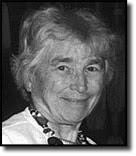Bernard, Jessie

Bio: (1903-1996) American sociologist. Jessie Bernard received her Ph.D. from the University of Washington in St. Louis and taught at the University of Pennsylvania. The main theme of her work is the impact of sexism on women's experience of marriage, parenthood, education, and economic activity. Bernard believes that women and men live in separate worlds, so the experience of marriage is completely different for the two sexes. The women's world, in the structural sense, represents the community - Gemeinschaft, while in the cultural sphere it represents the ethos of love and/or commitment. The women's sphere is a sphere of solidarity and understanding, so women are left out of professions that require aggression and competition. Bernard conducted serious sociological studies of family, marriage, and divorce. She studied the position of women, both in the family and marriage, as well as in public life. In The Future of Marriage (1972), she argues that men and women should reject their traditional gender roles (men earn, women do household chores, and care for children) and share those roles and jobs equally.
Bernard also studied the class social structure so in the book Social Problems at Midcentury (1957b) she argues that the need for the industrial economy for a large market has led to an increase in working class wealth, so wealthier workers are increasingly showing consumer patterns typical to middle classes, such as buying houses and household electrical appliances. That is why she defends the thesis that the middle class absorbed a significant part of the working class.
Main works
American Family Behavior (1942);
American Community Behavior (1949);
Remarriage: A Study of Marriage (1957a);
Social Problems at Midcentury: Role, Status, and Stress in a Context of Abundance (1957b);
Marriage and Family among Negroes (1966);
The Sex Game: Communication Between the Sexes (1968);
Women and the Public Interest: An Essay on Policy and Protest (1971);
The Future of Marriage (1972);
The Future of Motherhood (1974);
Women, Wifes, Mothers: Values and Options (1975);
The Female World (1981);
The Female World from a Global Perspective (1987).

